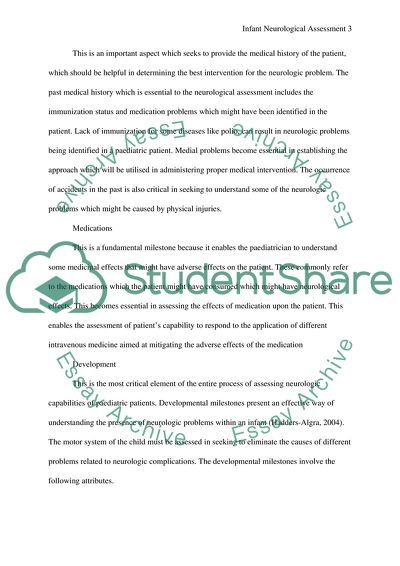The Neurological Assessment of the Infant (Ages Birth to 12 Months Assignment. https://studentshare.org/medical-science/1829246-the-neurological-assessment-of-the-infant
The Neurological Assessment of the Infant (Ages Birth to 12 Months Assignment. https://studentshare.org/medical-science/1829246-the-neurological-assessment-of-the-infant.


